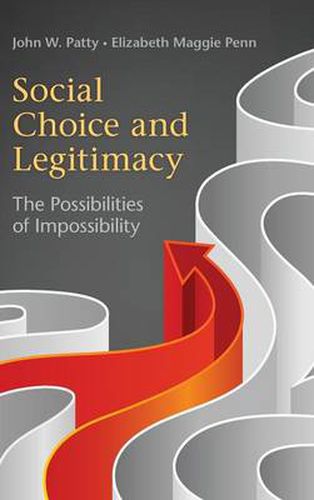Readings Newsletter
Become a Readings Member to make your shopping experience even easier.
Sign in or sign up for free!
You’re not far away from qualifying for FREE standard shipping within Australia
You’ve qualified for FREE standard shipping within Australia
The cart is loading…






Governing requires choices, and hence trade-offs between conflicting goals or criteria. This book asserts that legitimate governance requires explanations for such trade-offs and then demonstrates that such explanations can always be found, though not for every possible choice. In so doing, John W. Patty and Elizabeth Maggie Penn use the tools of social choice theory to provide a new and discriminating theory of legitimacy. In contrast with both earlier critics and defenders of social choice theory, Patty and Penn argue that the classic impossibility theorems of Arrow, Gibbard, and Satterthwaite are inescapably relevant to, and indeed justify, democratic institutions. Specifically, these institutions exist to do more than simply make policy - through their procedures and proceedings, these institutions make sense of the trade-offs required when controversial policy decisions must be made.
$9.00 standard shipping within Australia
FREE standard shipping within Australia for orders over $100.00
Express & International shipping calculated at checkout
Governing requires choices, and hence trade-offs between conflicting goals or criteria. This book asserts that legitimate governance requires explanations for such trade-offs and then demonstrates that such explanations can always be found, though not for every possible choice. In so doing, John W. Patty and Elizabeth Maggie Penn use the tools of social choice theory to provide a new and discriminating theory of legitimacy. In contrast with both earlier critics and defenders of social choice theory, Patty and Penn argue that the classic impossibility theorems of Arrow, Gibbard, and Satterthwaite are inescapably relevant to, and indeed justify, democratic institutions. Specifically, these institutions exist to do more than simply make policy - through their procedures and proceedings, these institutions make sense of the trade-offs required when controversial policy decisions must be made.